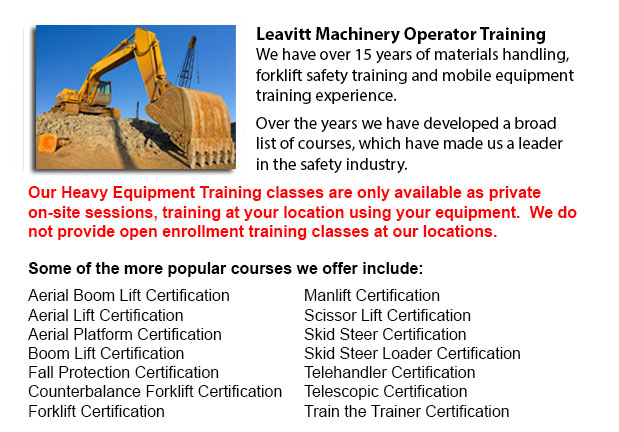
Edmonton Heavy Equipment Ticket - Depending on the nature of the task at hand, the kind of construction equipment that a heavy equipment operator makes use of varies. Each and every kind of machine is made to do specific tasks in the most efficient manner common to the construction industry. Various kinds of machines are small enough to be used inside of warehouses or within plants, and could be specifically designed to move pallets and boxes. Larger machine is customarily used outdoors to grade land and clear areas to prepare for construction.
There are many projects that require the skill of a heavy equipment operator, such as public works projects and endeavors of privately owned businesses. Tasked completed by public works offices could comprise construction of roads and the building of bridges. There are many other publicly funded projects which include airport runways, dam construction, levees, power plants and municipal structures. Private ventures can include the construction of malls, office buildings, retail stores and industrial parks.
Small scale jobs would normally require heavy machine to be utilized in big industrial spaces or inside commercial buildings. The machinery which will be utilized in this particular case, consists of forklifts, cherry pickers and pallet jacks. Backhoes and trenchers are often available in different sizes appropriate for tasks needing powerful and less bulky machines.
Normally, a heavy equipment operator is required to be certified by regional or local agencies. Some are cross-trained and certified to operate a variety of different equipment types. Other operators prefer to specialize in operating just one kind of machinery and only need periodic updates on their operating permit certifications.
The employers working in this industry operating heavy equipment will normally be trained by taking a formal apprenticeship program or by receiving on-the-job training by their unions or companies. It is essential that employers hire fully-trained heavy equipment operators to be able to adhere to local guidelines and adhere to regional and local laws regarding job situations and employee safety.
-
Narrow Aisle Forklift, Order Picker, Electric Pallet Jack, Electric Pallet Truck Certification in Edmonton
A pallet haul is a device built in particular for moving pallets of differing weights and sizes. They might be utilized in conjunction with cranes, lift trucks and other heavy duty machinery as an accessory piece or to be used on their own. Pallet ho... More -
Edmonton Zoom Boom Ticket
Edmonton Zoom Boom Ticket - Zoom Boom Training is designed to train operators on variable reach forklifts. The goals of the training are to impart an understanding of the physics of the machine, and to be able to outline the operator's tasks. This pr... More -
Edmonton Counterbalance Forklift Training
Edmonton Counterbalance Forklift Training - Counterbalance Forklift Training courses are always in high demand. The Counterbalance forklift is a forklift that is made together with a weight that counters the balance, equally distributing the weight o... More -
Edmonton Forklift License
Edmonton Forklift License - Getting a forklift license or forklift certification within North America would require the trainee to perform hands-on training in addition to classroom instruction. The state, provincial and federal regulatory bodies are... More -
Edmonton Crane Safety Training
Edmonton Crane Safety Training - Businesses and crane operators must know the issues related to crane safety. Legislation provides rules for the safe operation, inspection and maintenance of lifting machinery all around North America. Crane Safety co... More -
Edmonton Counterbalance Forklift License
Edmonton Counterbalance Forklift License - Forklifts, when operated by completely trained personnel, are a major asset to businesses. We provide a comprehensive training program consisting of all aspects of operating a powered lift equipment. Counter... More -
Edmonton Forklift Training Schools
Edmonton Forklift Training Schools - Why Forklift Training Schools Are Important To Your Business Are you searching for work as a forklift driver? Our regulatory-compliant mobile equipment operator training provides instruction in types of forklif... More -
Aerial Lift / Boom Lift / Man Lift / Scissor Lift Certification in Edmonton
Lift tables or also referred to as scissor lifts could raise both individuals and materials vertically. They are usually used in commercial, industrial and construction environments. Normally, the use of a scissor lift truck is to lift and lower supp... More

Forklift Certification Edmonton
TOLL FREE: 1-888-254-6157
Edmonton, Alberta
forkliftcertificationedmonton.com
Email Us
About Us



